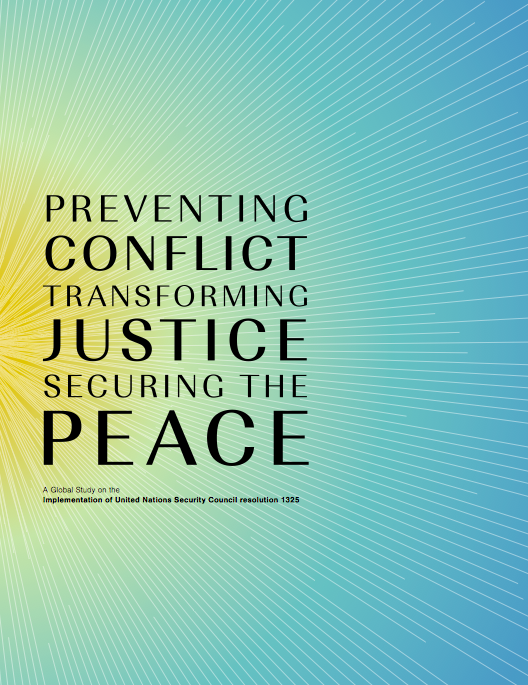
26 Jan, 2016
Women must be put at the core of global peace-building efforts: UN study
Bangkok, Thailand (25 January 2016) – Women’s participation and leadership must be at the core of peace and security efforts, a new study from UN Women finds.
Revealing groundbreaking new findings, UN Women and the Department of Women’s Affairs and Family Development (DWAFD), Ministry of Social Development and Human Security, of the Government of Thailand launched in Asia-Pacific the critical new report Preventing Conflict, Transforming Justice, Securing the Peace: A Global Study on the Implementation of Security Council resolution 1325.
Commissioned by the UN Secretary-General and led by independent author Radhika Coomaraswamy, former Special Representative of the Secretary-General on Children and Armed Conflict and Special Rapporteur on Violence against Women, the global study brings together research that unquestionably demonstrates that women’s empowerment and gender equality contribute to the conclusion of peace talks and sustainable peace, accelerating economic recovery, strengthening protection efforts of peace operations and humanitarian assistance, and building a culture of tolerance and inclusion.
The Global Study was initially presented at the UN Security Council’s High-level Review on the women, peace and security agenda held in New York in October 2015 commemorating the 15th anniversary of UN Security Council resolution 1325.
The study, which features case studies, data and good practices from different countries in the Asia–Pacific region, comes at a moment when the world is grappling with rising violence and conflict that has devastating impacts on women and girls and costs the planet over USD 14 trillion. This striking new research shows that peace endures when women can participate meaningfully in peace talks, and States are more resilient in the face of conflict and extremism when gender equality is prioritized.
“Evidence shows us that without women’s strong participation in peace processes and conflict prevention, there cannot truly be sustainable peace. Prevention is better than a cure,” said Roberta Clarke, UN Women Regional Director and Representative in Thailand. “UN Women is calling for stronger action to ensure women’s leadership in peace and security through political commitment and prioritizing financial support,” she stressed.
Highlighting the need to strengthen women’s role in peace and security in Thailand, Ms. Thirawadee Phumnikom, Acting Director General of DWAFD, provided: “Thailand sees the importance of women’s participation in the peace process at all stages, including prevention of conflict. In partnership with UN Women, we are moving forward elements of the United Nations Security Council Resolution 1325 and its associated resolutions at the national and local levels through developing a draft National Policy and Strategy on Women, Peace and Security”.
UN Security Council resolution 1325
The study coincides with the 15th anniversary of UN Security Council resolution 1325 (2000), which recognized for the first time the role of gender equality and women’s leadership in international peace and security. Yet over the last 15 years, the percentage of women in peace talks has stagnated in single digits, with national dialogues and decisions in conflict-affected countries dominated by a small group of male leaders. Direct consequences are felt on women’s lives: over half of the world’s maternal deaths occur in conflict-affected and fragile States; approximately half of out-of-school children of primary school age live in conflict-affected areas; and girls’ net enrolment rate in primary education is 17 points below the global rate. In conflict-affected settings, the risk of sexual violence, child marriage and HIV infection all increase.
In contrast, findings in the Global Study highlight that when women are at the peace tables, their participation increases the probability of a peace agreement lasting at least two years by 20 per cent, and 35 per cent over 15 years. Furthermore, evidence reflected in the study also shows that States that have higher levels of gender equality are less likely to resort to the use of force in relation to engagement with other States – making gender equality a powerful tool of conflict prevention.
During the event, UN Women’s Regional Director presented the main findings of the study, while Ms. Bandana Rana, Nepali member of the High Level Advisory Group on the Global Study, provided expert observations.
DWF provided the opening address and shared an overview of the Thai Governments’ women, peace and security priorities and commitment to recognizing women’s roles in the national agenda. In closing the launch, the Embassy of Japan, as co-chair of the Friends of the Global Study group, announced future plans for supporting women, peace and security in the region, namely co-hosting a symposium on WPS in mid-2016.




Liked this article? Share it!